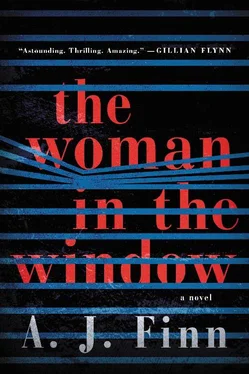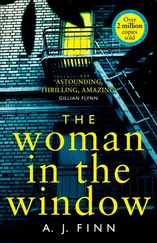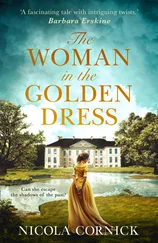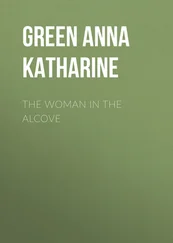А Финн - The Woman in the Window
Здесь есть возможность читать онлайн «А Финн - The Woman in the Window» весь текст электронной книги совершенно бесплатно (целиком полную версию без сокращений). В некоторых случаях можно слушать аудио, скачать через торрент в формате fb2 и присутствует краткое содержание. Год выпуска: 2018, ISBN: 2018, Издательство: William Morrow, Жанр: Триллер, det_all, на английском языке. Описание произведения, (предисловие) а так же отзывы посетителей доступны на портале библиотеки ЛибКат.
- Название:The Woman in the Window
- Автор:
- Издательство:William Morrow
- Жанр:
- Год:2018
- ISBN:9780062678416
- Рейтинг книги:5 / 5. Голосов: 1
-
Избранное:Добавить в избранное
- Отзывы:
-
Ваша оценка:
- 100
- 1
- 2
- 3
- 4
- 5
The Woman in the Window: краткое содержание, описание и аннотация
Предлагаем к чтению аннотацию, описание, краткое содержание или предисловие (зависит от того, что написал сам автор книги «The Woman in the Window»). Если вы не нашли необходимую информацию о книге — напишите в комментариях, мы постараемся отыскать её.
The Woman in the Window — читать онлайн бесплатно полную книгу (весь текст) целиком
Ниже представлен текст книги, разбитый по страницам. Система сохранения места последней прочитанной страницы, позволяет с удобством читать онлайн бесплатно книгу «The Woman in the Window», без необходимости каждый раз заново искать на чём Вы остановились. Поставьте закладку, и сможете в любой момент перейти на страницу, на которой закончили чтение.
Интервал:
Закладка:
A second step. A third. A fourth. By the time I’ve stumbled over a crack in the sidewalk, my slippers sopping, my body shaking, sweat sliding down my back, I’ve decided to hazard a second look. This time I open the other eye, lift the umbrella until she flares within my view again, a streaking flame. I flick a glance left—St. Dymphna’s, and now the fire-red house, its window boxes throbbing with mums. I flick a glance right: the beady eyes of a pickup staring down the street, headlights livid in the gloom. I freeze. The car swims past. I squeeze my eyes shut.
When I open them again, it’s gone. And when I look down the sidewalk, I see that she is, too.
Gone. The sidewalk is empty. In the distance, through the haze, I can make out a knot of traffic at the intersection.
The haze thickens, and I realize it’s my vision thickening, quickening.
My knees buck, then buckle. I start to sink to the ground. And as I do, even with my eyes reeling in my skull, I picture myself from overhead, shivering in my sodden robe, my hair pasted against my back, an umbrella dipped uselessly in front of me. A lone figure on a lonely sidewalk.
I sink further, melting into the concrete.
But—
—she can’t be gone . She hadn’t reached the end of the block. I shut my eyes, picture her back, the hair brushing her neck; then I think of Jane as she stood at my sink, one long braid plunging between her shoulder blades.
And as Jane turns to face me, my knees brace themselves against each other. I feel the robe dragging along the sidewalk, but I haven’t collapsed yet.
I stand still, my legs locked.
She must have disappeared into . . . I review the map in my brain. What’s beyond that red house? The antique shop sits across the street—vacant now, I remember—and beside the house is—
The coffee shop, of course. She must be in the coffee shop.
I lift my head back, raise my chin to the sky, as though I might fling myself upright. My elbows piston. My splayed feet press against the sidewalk. The umbrella handle wobbles in my fist. I swing one arm out for balance. And with the rain misting around me and the hiss of traffic in the distance, I build myself back up—up, up, up—until I’m once again standing.
My nerves crackle. My heart ignites. I can feel the Ativan in my blood vessels, clearing them like clean water gushing through a disused hose.
One. Two. Three. Four.
I scrape one foot forward. A moment later, the other follows. I shuffle. I can’t believe I’m doing this. I’m doing this.
Now I hear the traffic squalling closer, louder. Keep walking. I peek at the umbrella; it fills my vision, surrounds me. There’s nothing outside it.
Until it jolts to the right.
“Oh—sorry.”
I flinch. Something—someone—has bumped into me, knocked the umbrella aside; it rushes past, a blue blur of jeans and coat, and as I turn to watch, I see myself in a pane of glass: my hair in weeds, my skin damp, a tattersall umbrella protruding from my hand like an enormous flower.
And behind my reflection, on the other side of the window, I see the woman.
I’m at the coffee shop.
I stare. My vision bends. The awning overhead droops toward me. I shut my eyes, then open them again.
The entrance is within reach. I extend my arm, fingers trembling. Before they can grasp the handle, the door jerks open and a young man emerges. I recognize him. The Takeda boy.
It’s been more than a year since I saw him up close—in person, I mean, not through a lens. He’s taller now, his chin and cheeks a scrubland of blunt dark hair, but he still radiates that same ineffable Good Kid–ness I’ve learned to spot in young people, a secret halo orbiting their heads. Livvy’s got one. Ethan’s got one.
The boy—young man, I suppose (and why can’t I remember his name?)—props the door open with one elbow, beckons me in. I notice his hands, those fine-boned cellist’s hands. I must look derelict, yet still he’s treating me this way. His parents raised him right, as GrannyLizzie would say. I wonder if he recognizes me. I suppose I’d scarcely recognize myself.
As I drift past him, entering the shop, my memory thaws. I used to drop in here a few times a week, on those mornings when I was too rushed to brew coffee at home. The store blend tasted pretty bitter—I assume it still does—but I liked the ambience of the place: the cracked mirror with the day’s specials scrawled on it in Magic Marker, the countertops with their Olympic-ring stains, the speaker system piping oldies. “Unpretentious mise-en-scène,” Ed remarked the first time I brought him there.
“You can’t say those words in the same sentence,” I told him.
“Just unpretentious, then.”
And unchanged. The hospital room crushed me, but this is different—this is terra cognita. My eyelashes flutter. I loft my gaze over the gaggle of customers, study the menu tacked above the cash register. A cup now costs $2.95. That’s a fifty-cent hike since I was last here. Inflation is a bitch.
The umbrella swings low, grazes my ankles.
So much I haven’t seen in so long. So much I haven’t felt, haven’t heard, haven’t smelled —the radiant warmth of human bodies, pop music from decades past, the punch of ground beans. The whole scene unreels in slow motion, in golden light. For a moment I shut my eyes, inhale, remember.
I remember moving through the world the way you move through air. I remember striding into this coffee shop, a winter coat wrapped tight around me or a sundress billowing at the knees; I remember brushing against people, smiling at them, talking to them.
When I open my eyes again, the gilt light fades. I’m in a dim room, next to windows rinsed with rain. My heart speeds.
A bolt of red flames by the pastry counter. It’s her, inspecting Danishes. She lifts her chin, catches sight of herself in the mirror. Tugs a hand through her hair.
I edge closer. I can feel eyes on me—not hers, but other customers’, sizing me up, this woman in a bathrobe with a mushroomed umbrella wagging before her. I clear a channel through the crowd, through the noise, as I chug toward the counter. Then the chatter resumes, like water closing over me while I sink.
She’s a few feet away from me. One more step and I could reach out and touch her. Catch her hair in my fingers. Pull.
At that moment, she turns slightly and drops a hand into her pocket, wiggles loose her oversize iPhone. In the mirror I watch her fingers dance across the screen, watch her face flicker. I imagine her writing to Alistair.
“Excuse me?” the barista asks.
The woman taps on her phone.
“Excuse me?”
And now—what am I doing?—I clear my throat. “You’re up,” I mutter.
She stops, nods in my direction. “Oh,” she says, then turns to the man behind the counter. “Skim latte, medium.”
She didn’t even look at me. I look at myself, in the mirror, see me standing in back of her like a specter, an avenging angel. I’ve come for her.
“Skim latte, medium. Did you want something to eat with that?”
I watch the mirror, watch her mouth—small, precision-cut, so unlike Jane’s. A little wave of anger wells within me, swells within me, crests against the base of my brain. “No,” she says after a second. Then, with a bright sickle smile: “No, I’d better not.”
Behind us, a chorus of chairs scrapes across the floor. I glance over my shoulder; a party of four is heading for the door. I turn back.
The barista, his voice ringing above the din: “Name?”
Then the woman and I lock eyes in the mirror. Her shoulders hop. Her smile melts.
For an instant, time freezes, that breathless moment when you’re sailing off the road, into the gorge.
Читать дальшеИнтервал:
Закладка:
Похожие книги на «The Woman in the Window»
Представляем Вашему вниманию похожие книги на «The Woman in the Window» списком для выбора. Мы отобрали схожую по названию и смыслу литературу в надежде предоставить читателям больше вариантов отыскать новые, интересные, ещё непрочитанные произведения.
Обсуждение, отзывы о книге «The Woman in the Window» и просто собственные мнения читателей. Оставьте ваши комментарии, напишите, что Вы думаете о произведении, его смысле или главных героях. Укажите что конкретно понравилось, а что нет, и почему Вы так считаете.












